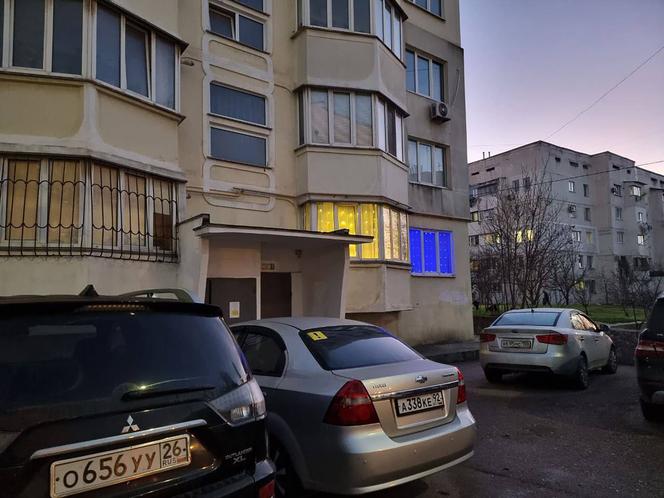


In recent months, war has been getting dangerously close to Crimea. "It's the next battlefield," said 22-year-old Bohdan. The young man grew up on the Ukrainian peninsula annexed by Russia in 2014 and whose military infrastructure is now being attacked by Kyiv. When Moscow invaded Ukraine on February 24, 2022, he ran to wake up his parents, who were convinced of being pro-Russia: "Can you see what's happening? Where is Putinism going?" "They didn't want to believe it," said this Ukrainian, now exiled in Georgia. "Until now, they thought Russia was benevolent. Now they've woken up to a new reality."
The voices of the people of Crimea are few and far between. Most refuse to speak out for fear of retaliation. However, Le Monde was able to gather testimonies from several people, via secure messaging or video calls. Some are still there, while others, like Bohdan, have fled in recent months. All participants requested anonymity to ensure their safety or that of their loved ones still on the peninsula. "Otherwise, tomorrow the FSB [Russian security services] will come knocking at my father's door," one of them said.
They spoke about how the war has changed their environment, their daily lives and their aspirations, even if the situation is much calmer than in the rest of Ukraine, which has been under Russian bombardment for the past two years. "Between February and September 2022, when I fled Crimea, it was horrifying, society was transformed," said Bohdan. In the streets and cinemas, posters bearing the initial "Z" and others calling for people to join the Russian army appeared. The presence of the population, particularly men, in public spaces had notably diminished. "Everyone acted as if nothing was happening, whereas in town, every sign was a call to enlist and a reminder of the war."
The repression, ongoing since 2014, has intensified further. Russian President Vladimir Putin's "special military operation" is particularly risky. "If you're caught, you have to publicly apologize on camera, or answer in court," said 20-year-old Olga (first name changed), who lives in the Sevastopol region. Tamila Tacheva, Ukrainian President Volodymyr Zelensky's representative for Crimea, confirmed: "After the large-scale offensive in February 2022, and especially in 2023, oppression has reached new heights. There are searches in the street, passports can be confiscated and telephones are investigated."
Despite the threats, acts of resistance are multiplying. "Ukrainians on the mainland don't know that this activism exists," said Tacheva. "Even for me it's surprising! Before the invasion, Crimeans only protested in defense of human rights. Today, they're showing their support for Ukraine." This resistance does not take the form of organized demonstrations but rather the more discreet form of a blue and yellow manicure, a Ukrainian flag on the facade of a building, a tattoo or even a Ukrainian song sung at a wedding.
You have 65% of this article left to read. The rest is for subscribers only.
